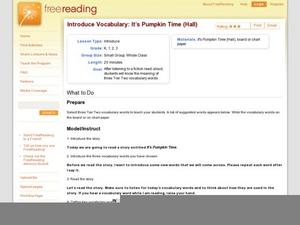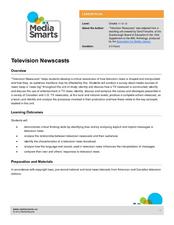Facing History and Ourselves
Social Media and Ferguson
How can social media help or hinder civil dialogue? How can information shared on social media be verified? As the investigation of media reports of the events surrounding the shooting of Michael Brown continues, class members read news...
Facing History and Ourselves
Citizen Watchdogs and the News
To conclude their case study of media coverage of the shooting of Michael Brown by a Ferguson, Missouri, police officer, class members consider the role of citizen watchdogs in a democratic society, develop strategies for combating...
Facing History and Ourselves
Preparing Students for Difficult Converstaitons
Many of the issues facing 21st Century learners are challenging and even discussing these issues can be a challenge. So how do teachers prepare learners for these difficult conversations? How do instructors create a safe classroom where...
Facing History and Ourselves
How Journalists Minimize Bias
Class members are challenged to write a neutral news story about the events they observe in a short video. After sharing their stories in groups and discussing the different perceptions, the class concludes with a video of journalists...
Curated OER
Scary Stuff
Fourth graders interview community members for a newspaper, design a business brochure, write a disappearing ghost story, and try their hands at monoprinting. This series of three lessons combines art, journalism, and creative writing....
Curated OER
How Communication Technologies Affect People
Third graders complete a worksheet, first with known information, and then with researched information. They create a PowerPoint, video, or radio broadcast to convey the results of their research. They learn to use a graphic organizer to...
Curated OER
Creating a Cartoon
For this journalism worksheet, students learn the guidelines for creating a political or editorial cartoon. Students complete 5 questions which help them plan the purpose, characters and setting for the cartoon. Students then draw the...
Curated OER
ESL English Grammar Lesson: The Royal Wedding
Have your ESL learners practice their written and oral English grammar skills, with this highly engaging ESL Lesson. Budding grammarians mingle across the room discovering what they each know about the Royal Wedding between Kate and...
Media Smarts
Broadcasting Codes
Let your learners be the judges for a series of case studies that focus on broadcast codes in Canada. In order to familiarize your class with the codes and guidelines that govern the broadcasting industry, in particular Canada's...
Media Smarts
Selling Tobacco
Take a look at tobacco advertising techniques through the decades. Students analyze the differences in strategies, and write an essay on the advertising history of one brand of tobacco, how tobacco advertising has changed over time, or...
Media Smarts
Violence on Television
Focus on a specific incident of violence on television in the case of the Canadian Broadcast System showing Silence of the Lambs on public television. Look at the broadcasting codes and a complaint that was filed against the Association....
Curated OER
Introduce Vocabulary: It's Pumpkin Time (Hall)
Looking for a Halloween-themed vocabulary lesson? Study words in context using Zoe Hall's story It's Pumpkin Time, an excellent informational text for budding readers. The spooky suggested words are: buds, gather, hollow,...
The New York Times
News and News Analysis: Navigating Fact and Opinion in the Times
Help your class understand the difference between fact and opinion by exploring the New York Times homepage and articles. In pairs or small groups, pupils complete a scavenger hunt, answering the provided questions. Next, discuss the...
MCHS Early US History
Ken Burn’s Civil War, Episode 1: The Cause
Ken Burn's epic documentary miniseries The Civil War, broadcast in 1990, was the most-watched PBS program ever. A question sheet helps viewers keep track of events in the first episode of the documentary.
Stanford University
Hurricane Katrina
The adage says that journalism is the first draft of history. How should people evaluate these sources of information? Taking into account various sources, including those from various perspectives and different creators, learners...
Newseum
When the News Media Make Mistakes
Mistakes happen. When they happen in news reporting, be it in print or on the internet, journalism ethics requires that the errors be corrected. Young journalists use an Accuracy Checklist to track how news organizations post corrections...
Franklin D. Roosevelt Presidential Library & Museum
Pearl Harbor Activity #1: Newspaper or Radio Account
After listening to President Franklin D. Roosevelt's "Day of Infamy" speech, young historians research information about the Japanese attack on Pearl Harbor, possible motives for the attack, and the consequences of the attack. Scholars...
Curated OER
Television Newscasts
When we watch news broadcasts on television, we receive a much more visual perspective than when we read the newspaper. How do sets, clothing, and music contribute to our understanding of the story? Compare American and Canadian news...
Curated OER
Journalism
Students insert raw data about Ad sales into an Excel chart. They use raw data in a letter to local businesses by using the Mail Merge program. They represent data using tables and graphs.
Curated OER
How the Media Uses Polling Data in Presidential Election Coverage
Students research and analyze polling data in journalism. They discuss reasons that polling data is included in media coverage of presidential elections.
Curated OER
Massaging the Message: Parliament Speaks
Students watch a CPAC broadcast, including the Question Period and discuss the roles of various members.
Curated OER
Heart Rate equals gym grade
Learners find out about an interesting activity that is going on in their school. Then the student interviews students and teachers to see how they would feel if a teacher monitored their heart rate during that specific project and that...
Curated OER
Ohio Virtual Academy: Learning Online
Young scholars spend time researching online education facilities. After interviewing teachers, they develop a survey on how productive online education sites are to its students. They write a story for the school newspaper about this...
Other popular searches
- Broadcast Journalism
- Yellow Journalism
- Journalism School Newspapers
- Journalism Layout
- Journalism Lesson Plans
- Investigative Journalism
- Photo Journalism
- Broadcast
- Journalism Introduction
- Journalism History
- Radio Broadcast
- Journalism and the Media

























